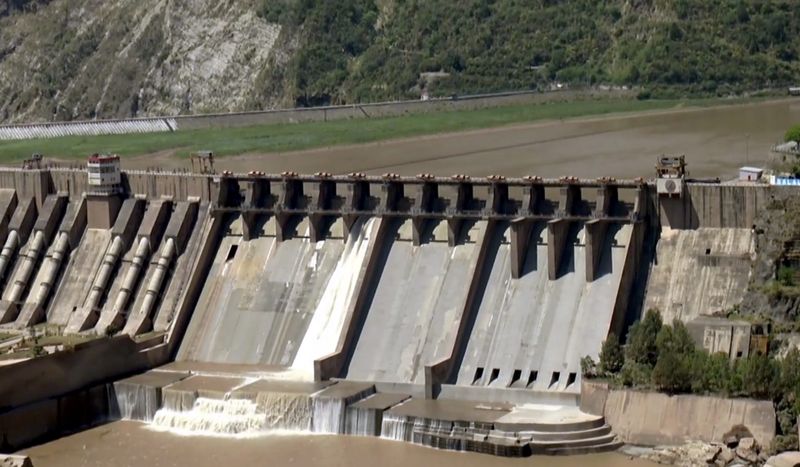NewsGate Press Network
There is good news for India with regard to Indus Water Treaty (IWT).
The news agency UNI is reporting on its website that Permanent Court of Arbitration at the Hague has, in an Award on Issues of General Interpretation of the Indus Water Treaty (IWT), said India is permitted by the Treaty to construct on the tributaries of the Indus, Jhelum and Chenab (“Western Rivers”) even though the general rule is that India shall ‘’let flow’’ the waters of the Western Rivers for Pakistan’s use.
The Court in an Award on August 8, said that even though the ‘’general rule’’ is that India shall “let flow” the waters of the Western Rivers for Pakistan’s use, there are certain specified exceptions to this rule, including in relation to the generation of hydroelectric power.
In the Award the Court did not address the application of its findings to the specific circumstances of the Kishenganga Hydro-Electric Plant (“KHEP”) or Ratle Hydro-Electric Plant (“RHEP”), two Indian projects presented in Pakistan’s Request for Arbitration.
‘’This arbitration concerns the interpretation and application of the Indus Waters Treaty to certain design elements of the run-of-river hydro-electric plants that India is permitted by the Treaty to construct on the tributaries of the Indus, Jhelum, and Chenab Rivers (the “Western Rivers”).
About the overall Approach to the Interpretation of Article III and Part 3 of Annexure D the general rule is that India shall “let flow” the waters of the Western Rivers.
However, there are certain specified exceptions to this rule, including in relation to the generation of hydroelectric power, the Court said.
India’s primary objection to the IWT arises out of from concerns about Pakistan’s support for cross-border terrorism and its implications for India’s national security and water resource management. India has linked the issue of water sharing with the broader context of bilateral relations, asserting that “blood and water cannot flow together”.
India stresses the need to re-negotiate the treaty because of climate change and its impact on water availability. The Treaty, signed in 1960, does not adequately address the challenges posed by climate change, necessitating a renegotiation of its provisions. India argues that the Treaty’s restrictions on hydropower projects, particularly on the Western Rivers (Chenab, Jhelum, and Indus), need to be revisited in light of modern dam engineering and the need for increased water storage and management.
India has formally notified Pakistan to seek modifications to the IWT, citing the need to address the issues of climate change, security concerns, and disputes over hydropower projects. India’s request for modifications in and renegotiation of the Treaty based on Article XII (3) of the IWT, is being resisted by Pakistan, fearing reduction in its water share.
India does not accept the court’s jurisdiction and insists on using a neutral expert mechanism.Pakistan has welcomed the Court’s Award and threatened India with serious consequences if the IWT was ‘’touched’’.


Comments are closed for this post.